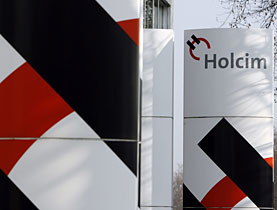Holcim wants Venezuela to pay for taking control

Swiss cement manufacturer Holcim is seeking compensation from Venezuela through international channels after the leftwing government nationalised its operations.
Holcim said the Venezuelan government had failed to live up to its promise to pay $550 million (SFr620 million) according to an agreement signed in August and had stopped all communication.
Holcim’s Venezuelan subsidiary was taken over in June along with two other international cement makers. The compulsory nationalisation was part of a campaign by Venezuelan president Hugo Chávez to take direct control of key industries.
Holcim signed a memorandum of understanding two months later to sell an 85 per cent stake of its operations for less than market value. No final binding agreement was signed, but the company has finally run out of patience with Venezuela’s stalling with no sign of the money being handed over.
It will now take up the matter at the International Centre for Settlement of Investment Disputes (ICSID) in Washington. Holcim said it would now seek “substantially greater” compensation than previously negotiated with Venezuela.
Government’s hands tied
“In the arbitration proceedings, Holcim intends to seek relief in the form of compensation equivalent to the full fair-market value of all assets at the time of the nationalisation,” the company said in a statement.
The company will argue that Venezuela has broken a 1993 bilateral agreement with Switzerland that obliges each country to protect the investments of the other that are based in its territory.
A company spokesman told swissinfo that “time would tell” if Venezuela came to the international arbitration table.
The State Secretariat for Economic Affairs (Seco) said it was “regrettable” that an amicable solution could not have been reached and that the Swiss government could no longer directly intervene in the matter.
Holcim could ill-afford to lose such a large sum of money after seeing profits plummet 54 per cent in 2008. The downturn in performance has forced the company to shed 3,300 jobs and shut down some production sites.
Many firms affected
Holcim is not the only international company to run into dispute with Venezuela’s nationalisation campaign. French cement maker Lafarge was forced to agree to a similar settlement as the Swiss company last year.
Mexican counterpart, Cemex, began international arbitration proceedings in December after failing to reach terms with Venezuela.
After driving foreign oil firms out of Venezuela, Chávez last year warned Swiss food giant Nestlé that its milk processing plant in Venezuela could be seized. The financial community was troubled by the forced nationalisation of Spanish bank Santander.
This year Chávez has ordered Coca-Cola to vacate a plot of land while seizing a unit of United States agricultural commodities trader Cargill.
swissinfo with agencies
Venezuela embarked on a course of state nationalisation of key industries shortly after socialist president Hugo Chávez assumed power in 1999.
Starting with the oil industry – the country’s major revenue stream – Chávez has shifted his attention to other sectors in recent years.
After winning re-election in 2006, Chávez proclaimed: “Everything that was privatised will be nationalised.” The first industries to fall under this renewed wave of nationalisation were telecommunications and utilities, but his attention soon turned to firms he accused of contributing to food shortages.
Last year Holcim and other cement makers were told to hand over their Venezuelan subsidiaries.
After winning a referendum in February to do away with presidential term limits – allowing Chávez to rule indefinitely – he announced plans to take over Cargill, the world’s largest trader of agricultural commodities.
The country’s biggest remaining private company, Polar, a manufacturer of food brands, was also targeted last month.
During the first nine months of 2008, Switzerland exported more than SFr200 million of goods to Venezuela and imported goods to the value of SFr53 million. Swiss companies employ more than 10,000 people in Venezuela.

In compliance with the JTI standards
More: SWI swissinfo.ch certified by the Journalism Trust Initiative








You can find an overview of ongoing debates with our journalists here . Please join us!
If you want to start a conversation about a topic raised in this article or want to report factual errors, email us at english@swissinfo.ch.